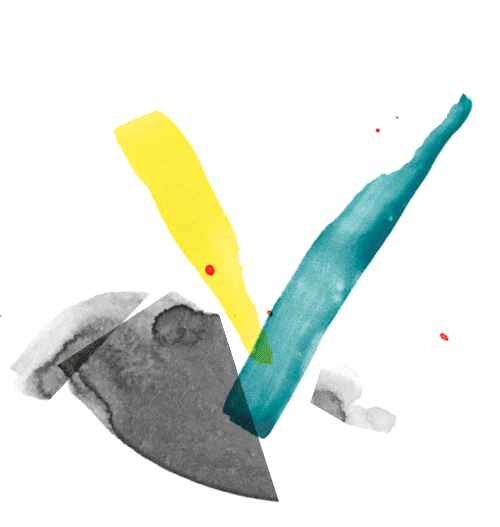

Sign up for our newsletters. You can change the settings or unsubscribe at any time.
Thank you for your subscription. We have sent you an e-mail with a confirmation link.


exp. 1
exp. 2
exp. 3

Francisco Huichaqueo
Venue: Gropius Bau
Francisco Huichaqueo
Born 1977 in Valdivia, CL – lives and works in Concepción, CL
Every Mapuche knows another—a relative, a friend or acquaintance—who is or has been a political prisoner. In retaliation for the defense of their territories against deforestation and other forms of extractivism, the Chilean state continues to prosecute Mapuche activists under a counter-terrorism legislation introduced by the military dictatorship. Chile, where Mapuche filmmaker Francisco Huichaqueo was born, embraces a racialized concept of citizenry, waging a covert and overt war on the Mapuche people. Besieged physically, the Mapuche are nonetheless able to travel spiritually, a process the Mapudungun language calls perimontun (vision or apparition). Cinema grafts itself easily onto the Mapuche ability to inhabit the tangible and the intangible, the reel operating as a portal to the political and spiritual dimensions of the Mapuche world.
For the project Wenu Pelon. Kuifi ül [Ancient Sound. Portal of Light, 2015/20], all creative decisions Huichaqueo made via lucid dreaming, aided by a Machi or spiritual leader, and each film included corresponds to a pewma, or dream. Wenu Pelon is the first glimpse of light at dawn—the most important moment of the Wiñol tripantü, the Mapuche New Year. The sacred blue of dawn is also the color of the Mapuche war flag, used to mark contested territories. Wenu Pelon is an invocation, a spiritual call to liberate those under colonial incarceration—including the looted Mapuche objects being held in museum vaults around the world.
Filmed on the first day of Wiñol tripantü, Kuifi ül [Ancient Sound, 2020] is inhabited by the song of the trutruka, a wind instrument that resonates in the hills and throughout the territory for several days during the ceremony. Within the installation, the sound aims to awaken Mapuche objects—a kultrün, a pifüllka, a metawe—normally in the custody of a German museum, removed from the hands that created them. For Huichaqueo, this temporary encounter between his people’s belongings and their ancient song constitutes a spiritual preparation for their inevitable return to their home, among their people.
Ana Teixeira Pinto/María Berríos
Queer Ancient Ways: A Decolonial Exploration
Zairong Xiang
Monograph
Memorial to the Sinti and Roma Victims of National Socialism
Dani Karavan
Memorial
Glossary of Common Knowledge
L’Internationale Online
Glossary
III: La familia son quiénes se alegran con nuestros actos diarios. Detrás de las curadoras de la XI
María Berríos, Agustín Pérez Rubio
Conversation
Invitation to the Species: Cecilia Vicuña
Tamaas / Cecilia Vicuña
Podcast
O Bailado do Deus Morto
Flávio de Carvalho
Play
By using this website you agree to the use of cookies in accordance with our data privacy policy.

Francisco Huichaqueo
Venue: Gropius Bau
Francisco Huichaqueo
Born 1977 in Valdivia, CL – lives and works in Concepción, CL
Every Mapuche knows another—a relative, a friend or acquaintance—who is or has been a political prisoner. In retaliation for the defense of their territories against deforestation and other forms of extractivism, the Chilean state continues to prosecute Mapuche activists under a counter-terrorism legislation introduced by the military dictatorship. Chile, where Mapuche filmmaker Francisco Huichaqueo was born, embraces a racialized concept of citizenry, waging a covert and overt war on the Mapuche people. Besieged physically, the Mapuche are nonetheless able to travel spiritually, a process the Mapudungun language calls perimontun (vision or apparition). Cinema grafts itself easily onto the Mapuche ability to inhabit the tangible and the intangible, the reel operating as a portal to the political and spiritual dimensions of the Mapuche world.
For the project Wenu Pelon. Kuifi ül [Ancient Sound. Portal of Light, 2015/20], all creative decisions Huichaqueo made via lucid dreaming, aided by a Machi or spiritual leader, and each film included corresponds to a pewma, or dream. Wenu Pelon is the first glimpse of light at dawn—the most important moment of the Wiñol tripantü, the Mapuche New Year. The sacred blue of dawn is also the color of the Mapuche war flag, used to mark contested territories. Wenu Pelon is an invocation, a spiritual call to liberate those under colonial incarceration—including the looted Mapuche objects being held in museum vaults around the world.
Filmed on the first day of Wiñol tripantü, Kuifi ül [Ancient Sound, 2020] is inhabited by the song of the trutruka, a wind instrument that resonates in the hills and throughout the territory for several days during the ceremony. Within the installation, the sound aims to awaken Mapuche objects—a kultrün, a pifüllka, a metawe—normally in the custody of a German museum, removed from the hands that created them. For Huichaqueo, this temporary encounter between his people’s belongings and their ancient song constitutes a spiritual preparation for their inevitable return to their home, among their people.
Ana Teixeira Pinto/María Berríos
Touching Feeling. Affect, Pedagogy, Performativity
Eve Kosofsky Sedgwick
Monograph
Queer Ancient Ways: A Decolonial Exploration
Zairong Xiang
Monograph
Museo de la Solidaridad Salvador Allende (MSSA) in Berlin
A conversation between María Berríos and Melanie Roumiguière
Conversation
Being in Crisis together – Einander in Krisen begegnen
Feminist Health Care Research Group (Inga Zimprich/Julia Bonn)
Online workshop
„Klaus Eckschen: Hörspiel“
Die Remise
Hörspiel
Undocumented Rumours and Disappearing Acts from Chile
María Berríos
Essay
By using this website you agree to the use of cookies in accordance with our data privacy policy.

Francisco Huichaqueo
Venue: Gropius Bau
Francisco Huichaqueo
Born 1977 in Valdivia, CL – lives and works in Concepción, CL
Every Mapuche knows another—a relative, a friend or acquaintance—who is or has been a political prisoner. In retaliation for the defense of their territories against deforestation and other forms of extractivism, the Chilean state continues to prosecute Mapuche activists under a counter-terrorism legislation introduced by the military dictatorship. Chile, where Mapuche filmmaker Francisco Huichaqueo was born, embraces a racialized concept of citizenry, waging a covert and overt war on the Mapuche people. Besieged physically, the Mapuche are nonetheless able to travel spiritually, a process the Mapudungun language calls perimontun (vision or apparition). Cinema grafts itself easily onto the Mapuche ability to inhabit the tangible and the intangible, the reel operating as a portal to the political and spiritual dimensions of the Mapuche world.
For the project Wenu Pelon. Kuifi ül [Ancient Sound. Portal of Light, 2015/20], all creative decisions Huichaqueo made via lucid dreaming, aided by a Machi or spiritual leader, and each film included corresponds to a pewma, or dream. Wenu Pelon is the first glimpse of light at dawn—the most important moment of the Wiñol tripantü, the Mapuche New Year. The sacred blue of dawn is also the color of the Mapuche war flag, used to mark contested territories. Wenu Pelon is an invocation, a spiritual call to liberate those under colonial incarceration—including the looted Mapuche objects being held in museum vaults around the world.
Filmed on the first day of Wiñol tripantü, Kuifi ül [Ancient Sound, 2020] is inhabited by the song of the trutruka, a wind instrument that resonates in the hills and throughout the territory for several days during the ceremony. Within the installation, the sound aims to awaken Mapuche objects—a kultrün, a pifüllka, a metawe—normally in the custody of a German museum, removed from the hands that created them. For Huichaqueo, this temporary encounter between his people’s belongings and their ancient song constitutes a spiritual preparation for their inevitable return to their home, among their people.
Ana Teixeira Pinto/María Berríos
Teatro da Vertigem
Monograph
Flávio de Carvalho: Fazenda Capuava
Archive of Lisette Lagnado
Photographs
Freiheit für Chile!
Anonymous
Photo album
Expresiones de la locura: el arte de los enfermos mentales
Hans Prinzhorn
Monograph
Queer Ancient Ways: A Decolonial Exploration
Zairong Xiang
Monograph
Memorial to the Sinti and Roma Victims of National Socialism
Dani Karavan
Memorial
By using this website you agree to the use of cookies in accordance with our data privacy policy.

Francisco Huichaqueo
Venue: Gropius Bau
Francisco Huichaqueo
Born 1977 in Valdivia, CL – lives and works in Concepción, CL
Every Mapuche knows another—a relative, a friend or acquaintance—who is or has been a political prisoner. In retaliation for the defense of their territories against deforestation and other forms of extractivism, the Chilean state continues to prosecute Mapuche activists under a counter-terrorism legislation introduced by the military dictatorship. Chile, where Mapuche filmmaker Francisco Huichaqueo was born, embraces a racialized concept of citizenry, waging a covert and overt war on the Mapuche people. Besieged physically, the Mapuche are nonetheless able to travel spiritually, a process the Mapudungun language calls perimontun (vision or apparition). Cinema grafts itself easily onto the Mapuche ability to inhabit the tangible and the intangible, the reel operating as a portal to the political and spiritual dimensions of the Mapuche world.
For the project Wenu Pelon. Kuifi ül [Ancient Sound. Portal of Light, 2015/20], all creative decisions Huichaqueo made via lucid dreaming, aided by a Machi or spiritual leader, and each film included corresponds to a pewma, or dream. Wenu Pelon is the first glimpse of light at dawn—the most important moment of the Wiñol tripantü, the Mapuche New Year. The sacred blue of dawn is also the color of the Mapuche war flag, used to mark contested territories. Wenu Pelon is an invocation, a spiritual call to liberate those under colonial incarceration—including the looted Mapuche objects being held in museum vaults around the world.
Filmed on the first day of Wiñol tripantü, Kuifi ül [Ancient Sound, 2020] is inhabited by the song of the trutruka, a wind instrument that resonates in the hills and throughout the territory for several days during the ceremony. Within the installation, the sound aims to awaken Mapuche objects—a kultrün, a pifüllka, a metawe—normally in the custody of a German museum, removed from the hands that created them. For Huichaqueo, this temporary encounter between his people’s belongings and their ancient song constitutes a spiritual preparation for their inevitable return to their home, among their people.
Ana Teixeira Pinto/María Berríos
A Moment of True Decolonization / Episode #6: Sinthujan Varatharajah. Constructing the Tamil Eelam State
The Funambulist / Sinthujan Varatharajah
Podcast
Being in Crisis together – Einander in Krisen begegnen
Feminist Health Care Research Group (Inga Zimprich/Julia Bonn)
Online workshop
Feminist Health Care Research Group
Web archive
III: La familia son quiénes se alegran con nuestros actos diarios. Detrás de las curadoras de la XI
María Berríos, Agustín Pérez Rubio
Conversation
Undocumented Rumours and Disappearing Acts from Chile
María Berríos
Essay
A World Without Bones
Agustín Pérez Rubio
By using this website you agree to the use of cookies in accordance with our data privacy policy.
By using this website you agree to the use of cookies in accordance with our data privacy policy.




